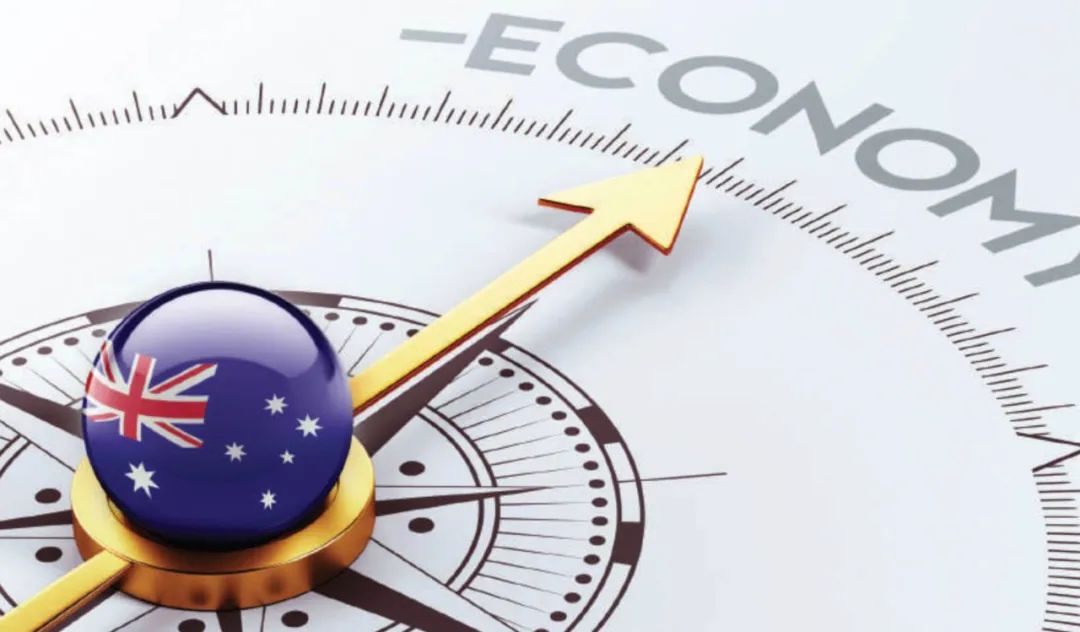Surge in First-Time Homebuyers! Tens of Thousands of Australians Flock to the Treasury Department to Apply for New Home/Renovation Grants! Australian Economic Recovery Leading Other Developed Countries
Last week, the Morrison government announced a fiscal stimulus program called HomeBuilder.
The latest data shows that this program is generating a strong response, with over 12,000 people already flocking to the Treasury Department’s website to register and apply for grants.
Minister for Housing Michael Sukkar stated that the application volume for the stimulus program announced last week is expected to continue to increase. He told the media that over 130,000 people have already inquired about the details of the policy on the website.
He said, “HomeBuilder grants are receiving overwhelming support from first-time homebuyers, with a significant number of middle-income families considering purchasing homes and land. Additionally, it is expected that more and more families will seek to upgrade to larger new homes.”
“Of course, among those seeking grants are also those planning significant renovations to their existing homes to meet future needs.”
This $688 million program is applicable to building contracts signed from now until the eve of 2021. Its purpose is to support thousands of jobs in the construction industry and stimulate the economy impacted by the pandemic.
Opposition leader Richard Marles stated that more stimulus policies are still needed. Due to the contraction of the construction industry caused by the pandemic, there is an estimated shortage of 60,000 properties in the future, while the government’s support program can only add 10,000 properties.
“For us, this should be done better. In the past few weeks, we have been discussing a range of measures to increase spending on social housing and removing the cap on the first homebuyer grant,” Mr. Marles told the media.
Under the HomeBuilder program, eligible owner-occupiers, including first-time homebuyers, will receive a grant of $25,000 to build a new home or “substantially renovate” an existing home.
The program requires building contracts to be signed between June 4th, 2020, and December 31st, 2020, and construction must commence within three months of the contract date.
HomeBuilder will be implemented alongside existing state and territory first homebuyer grant schemes, stamp duty concessions, and other grants, with no conflict. This means that buyers may be eligible for more than double the amount in grants.
This $688 million HomeBuilder program will be available to Australians building new homes valued at less than $750,000. It can also be used for renovations valued between $150,000 and $750,000, with the requirement that the original value of the property being renovated does not exceed $1.5 million.
The grant cannot be used for investment properties or standalone structures not connected to the main dwelling, such as swimming pools, tennis courts, outdoor spas, saunas, sheds, or garages, and the work must be performed by a licensed builder.
There are also income thresholds for the grant, applicable to individuals with annual incomes below $125,000 or couples with incomes below $200,000.
Strong Demand for High-Quality Office Buildings and Logistics Assets in Australia
According to the latest news, the Australian commercial real estate market is showing clear signs of recovery.
On the one hand, transactions for multiple logistics assets are being finalized, and on the other hand, the demand for high-quality office buildings is starting to rebound.
Following the COVID-19 crisis, these two sectors of the real estate market are returning to normal. Among these two segments, the logistics assets are particularly hot. For example, in recent transactions, real estate investment giant Charter Hall has firmly strengthened its investments in the logistics real estate industry and embarked on a large-scale acquisition spree.
A week ago, Charter Hall, in partnership with global investment group Allianz Real Estate, acquired a significant logistics investment portfolio from the German supermarket giant Aldi for $648 million.
This week, Charter Hall invested $115 million to acquire a logistics warehouse center in Western Sydney, further strengthening its $40 billion real estate investment empire.
Transactions for high-quality office buildings are also underway. Singapore’s sovereign wealth fund, GIC, is in talks to acquire a Melbourne CBD building from LaSalle Investment Management for around $350 million.
This flourishing situation cannot be separated from Australia’s rapid recovery pace.
Australian Economic Recovery Leading Developed Countries
The Organization for Economic Co-operation and Development (OECD) states that Australia is leading developed countries in emerging from the recession caused by the pandemic. However, governments must reform labor markets, taxation, regulation, and competition to ensure sustained economic recovery.
The OECD also warns the Australian government against withdrawing welfare support too quickly in September and suggests considering further stimulus measures to boost income and reduce unemployment.
According to the OECD’s latest forecast released on Wednesday, Australia’s economic output is projected to shrink by 5% in 2020 and consumption to decline by 7.6% due to the recession. However, in terms of economic resilience, Australia ranks just below South Korea, China, and Indonesia.
If the control of the coronavirus is maintained and a “second wave” is avoided, Australia’s economy is expected to rebound by 4.1% in 2021. It is predicted that global GDP will decline by 6% this year, the largest drop in the 60-year history of the OECD, with income losses surpassing any global recession in the past 100 years (excluding war periods).
The OECD report states that Australia has “sufficient fiscal space” to support economic recovery and avoid the trauma of unemployment, especially among young workers.
June Consumer Confidence Returns to Pre-COVID Levels
Economic recovery relies on consumer momentum, and with the relaxation of COVID-19 restrictions, people’s optimism is increasing. Consumer confidence in June has returned to pre-pandemic levels.
The Westpac Consumer Confidence Index for the Asia-Pacific region rose by 6.3% in May to 102.1, pushing the index above 100. This means that among the 1,200 people surveyed in the first week of June, there were more optimists than pessimists.
Bill Evans, Chief Economist at Westpac, stated that after rebounding by 16.4% in May, the index has now made up for the 20% decline during the outbreak in March and April. He said, “Australia has successfully controlled the spread of the coronavirus and further relaxed social restrictions, which has clearly boosted people’s confidence.”
Experts predict that over time, Australians will increase their confidence in real estate investments.
The pandemic has made people realize once again that a home is an essential condition for life security and happiness.
More and more people are reconsidering their living spaces and wanting to create a “safe haven” for healthy living for themselves and their families.






